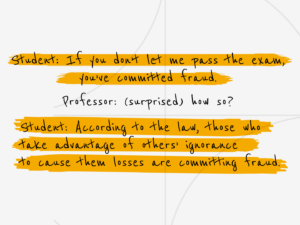
How I Passed 4 AWS Exams in Less Than a Year
Over the course of a year, I’ve earned four AWS certifications: Solutions Architect, Security Specialty, Machine Learning Specialty, and Advanced Networking Specialty. Previously, I wrote about what drives me to pursue these certifications, so if you need some motivation before getting into the practical part, check that article. In this follow-up article, I’ll share my learning techniques – which I found were quite different from most people – that helped me succeed. You can use these strategies to learn to the AWS exams or any other exams that require extensive knowledge and multiple-choice questions.
Start with scheduling an exam
The first step is to schedule your exam. Yes, I know it’s not a natural tendency, but setting a deadline helps you focus your energy. You can always reschedule if necessary, but having that date on the calendar is a powerful motivator. You might experience what I had in my Machine Learning exam – I intended to reschedule but forgot to do so in time, so I had no choice but to take the exam, despite feeling unprepared – and I passed, sparing myself another week of intense study.

Register for a course
If you are a true autodidact, you might be able to study alone. But in my experience, finding a good course that would set me on the right track was always worth it. A good course gives you a clear structure, a reliable estimate of the time needed, and a step-by-step path to follow. This saves you from having to consult multiple resources and gives you confidence that you’re prepared.
Make it public
Promises made only to yourself are often easier to break, but when you share your goal with others, it becomes more “real.” By telling friends, family, or colleagues about your plan to pass a specific exam, you create a sense of accountability. Knowing that others are aware of your ambition can be a powerful motivator—you’ll want to avoid the disappointment of falling short. You will feel even more excited to share your success once you’ve achieved it.
Understanding vs. remembering
There are two stages in learning: understanding and remembering. I find that many times we try to do both simultaneously using the same technique for both, and this is where many people fall short and get frustrated. Separating these stages and using different methods for each helps the learning process significantly.
When I go over course materials or listen to long lectures on exam topics, I’m at the understanding stage. I don’t try to remember anything. I don’t spend too much time on details as long as I’m sure that I understood what was said. For example, during my Solutions Architect Associate (SAA) exam preparation, the course included 2.5 hours of video on S3 bucket, detailing storage classes, bucket policies, IAM roles, lifecycle rules, etc. Instead of memorizing all the specifics, I focused on understanding the essential concepts. This way, I could make sense of the material without feeling overwhelmed by the details.

Don’t summarize
If summarizing works for you, stick to it. But personally, I find it too time-consuming for the benefits. Instead, I rely on course materials like downloadable slides. I follow along as I listen, marking key points and adding quick notes. Later, I review these highlights for a quick refresher. If slides aren’t available or detailed enough, I recommend focusing on listening and understanding rather than summarizing everything. Otherwise, you will just get tired and overwhelmed.
The Game-Changer: Effective use of practice exams and questions
Once I’ve laid the foundation of understanding, I move to the remembering stage, where practice exams become the ultimate tool. I find that most people treat practice exams as tools to validate their learning, something to tackle only once they’ve summarized, memorized, and sat through endless hours of lectures. But I do the opposite: answering questions is my method for remembering. Practice exams are more than just a test of what you know—they’re a way to learn what you don’t. I approach questions with open materials, taking my time researching and exploring the answers, treating each one as a chance to actively engage with the content. When I’m stuck between two close options, I dig deeper until the concept truly clicks. Checking the correct answer immediately provides instant feedback, helping me reinforce what I’ve learned right on the spot.
By separating understanding and remembering into two distinct phases, I avoid wasting time and energy trying to memorize during lectures or summarizing endless material. Instead, I use lectures to build comprehension and practice exams to actively retain and apply the
knowledge. This two-step approach makes learning more effective and far less overwhelming. If there’s one strategy to take away from this article, it’s to treat practice exams as your primary tool for mastering material—you’ll learn faster, remember more, and ultimately see better results.

Preparing your body and mind
We all know it but don’t always take it seriously enough. Preparing your body and mind before the exam is essential. Ensure you get a good night’s sleep, eat nutritious (but not heavy) food, breathe deeply, and whisper to yourself, “I can do it.”
Motivation
Each person’s learning process is different, and what works for one might not work for another. I hope that by sharing my approach, I’ve opened your mind to exploring new ways of learning. Taking an AWS exam can be a challenging yet rewarding experience. Embrace the process, stay curious, and find the methods that resonate with you.
Good luck on your certification journey!